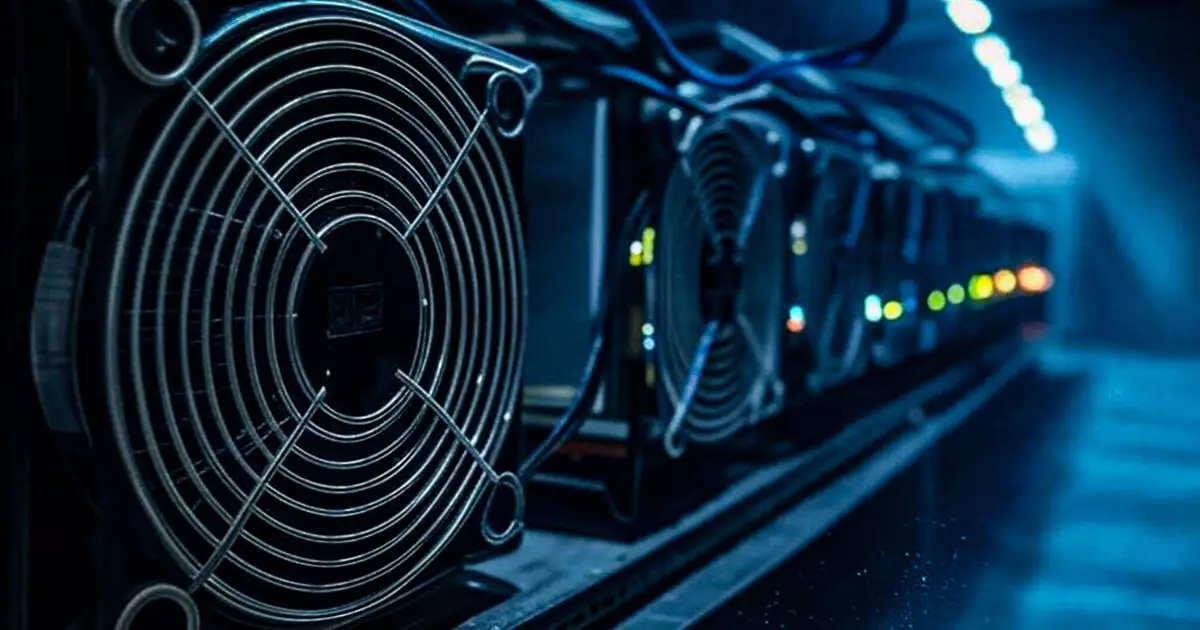In recent months, a critical dilemma has emerged within the American cryptocurrency mining sector, largely stemming from intensified regulatory scrutiny surrounding shipments of essential mining hardware. The primary culprit in this predicament is Bitmain, a Chinese company that holds a staggering 90% share of the global market for ASIC mining rigs. Commodities from Bitmain, which are vital for efficient Bitcoin mining, have been ensnared by the U.S. Customs and Border Protection (CBP) due to heightened inspections and concerns regarding national security. This growing scrutiny is intricately linked to the broader geopolitical landscape marked by rising trade tensions between the United States and China.
The current import delays can be traced back to the U.S. Commerce Department’s decision to blacklist companies like Xiamen Sophgo Technologies Ltd., associated with Bitmain. Accusations surrounding the role of such companies in aiding China’s advancements in chip production have painted a shadow over the cryptocurrency mining industry. Industry executives have noted that even minor shipments are now under the microscope, as customs officials conduct inspections with unprecedented rigor. Reports indicate that the scrutiny began roughly three months prior, emphasizing a shift in customs policy towards a much stricter enforcement of regulations related to equipment deemed crucial for cryptocurrency mining.
The ramifications of these delays extend well beyond the shipping dock. Mining operators across the United States are grappling with significant operational disruptions. For instance, a mining operation located in Oklahoma, which relies on a fleet of 2,000 rigs, has described notable delays attributed to customs inspections, which are becoming increasingly comprehensive. Connective commentary from industry leaders offers insight into the suffocating pressures miners now face. Ethan Vera, COO of Luxor Technology, pointed out that shipments bearing Bitmain’s label are particularly subjected to rigorous checks, thereby obstructing the timely delivery of crucial hardware.
Furthermore, the return of tariffs has worsened the outlook for miners dependent on imported machinery. With the Biden administration implementing an additional 10% tariff on Chinese products, the cost associated with importing these machines has skyrocketed. This financial pressure might lead to a decrease in the number of projects capable of thriving under such stringent conditions. Taras Kulyk, CEO of Synteq Digital, highlighted that soaring tariffs could effectively halt the import of next-generation hardware altogether, a scenario that not only endangers ongoing projects but also threatens the entire sustainability of the U.S. mining ecosystem.
Statistics tell a sobering story. According to data from the CBP, the volume of Bitcoin mining rigs and accessories imported into the United States saw a steep decline of nearly 65% year-over-year as of January 2025. This staggering drop serves as a stark reminder of how quickly regulatory frameworks can reshape an industry’s landscape. While companies like Bit Digital have reported minor delays in receiving shipments, the cumulative effect of widespread customs challenges could lead to crippling setbacks for less fortunate mining operations.
As regulatory pressures mount, Bitmain’s previously unassailable position in the market is starting to see signs of vulnerability. With competition heating up from companies like MicroBT, based in China, and California’s Auradine, there is a growing chorus urging miners to diversify their suppliers. Ethan Vera’s cautionary perspective reinforces the idea that reliance on Bitmain is becoming a liability, particularly for publicly traded companies.
In response to the conundrums posed by the crackdown on semiconductor imports, Bitmain has taken proactive steps by establishing a manufacturing presence within the United States. The rollout of the Antminer S21 Pro, produced at its new domestic facility, could prove to be a pivotal moment in adapting to supply chain disruptions. This strategic shift not only aims to buffer against regulatory risks but also holds the potential to enhance operational efficiency.
Ultimately, the unfolding situation represents a turning point for U.S. crypto miners, demanding ingenuity and resilience in an increasingly fraught environment. As the industry faces multi-dimensional challenges stemming from strict regulatory audits, evolving trade policies, and growing competition, the path forward may hinge on strategic realignments that prioritize sustainability in hardware provisioning.

